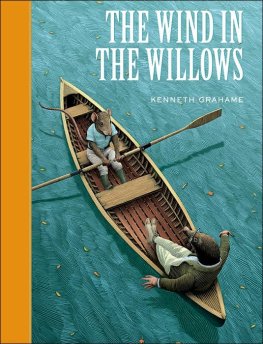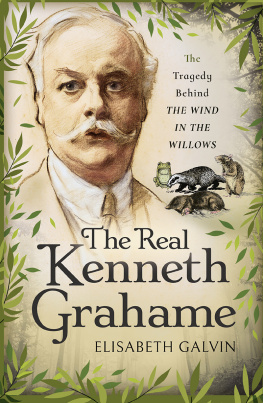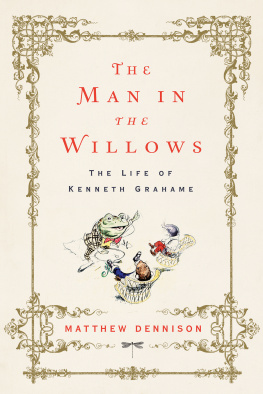Kenneth Grahame - Wind in the Willows (Barnes & Noble Classics Series)
Here you can read online Kenneth Grahame - Wind in the Willows (Barnes & Noble Classics Series) full text of the book (entire story) in english for free. Download pdf and epub, get meaning, cover and reviews about this ebook. publisher: Barnes & Noble, genre: Detective and thriller. Description of the work, (preface) as well as reviews are available. Best literature library LitArk.com created for fans of good reading and offers a wide selection of genres:
Romance novel
Science fiction
Adventure
Detective
Science
History
Home and family
Prose
Art
Politics
Computer
Non-fiction
Religion
Business
Children
Humor
Choose a favorite category and find really read worthwhile books. Enjoy immersion in the world of imagination, feel the emotions of the characters or learn something new for yourself, make an fascinating discovery.

- Book:Wind in the Willows (Barnes & Noble Classics Series)
- Author:
- Publisher:Barnes & Noble
- Genre:
- Rating:3 / 5
- Favourites:Add to favourites
- Your mark:
- 60
- 1
- 2
- 3
- 4
- 5
Wind in the Willows (Barnes & Noble Classics Series) : summary, description and annotation
We offer to read an annotation, description, summary or preface (depends on what the author of the book "Wind in the Willows (Barnes & Noble Classics Series) " wrote himself). If you haven't found the necessary information about the book — write in the comments, we will try to find it.
Wind in the Willows (Barnes & Noble Classics Series) — read online for free the complete book (whole text) full work
Below is the text of the book, divided by pages. System saving the place of the last page read, allows you to conveniently read the book "Wind in the Willows (Barnes & Noble Classics Series) " online for free, without having to search again every time where you left off. Put a bookmark, and you can go to the page where you finished reading at any time.
Font size:
Interval:
Bookmark:
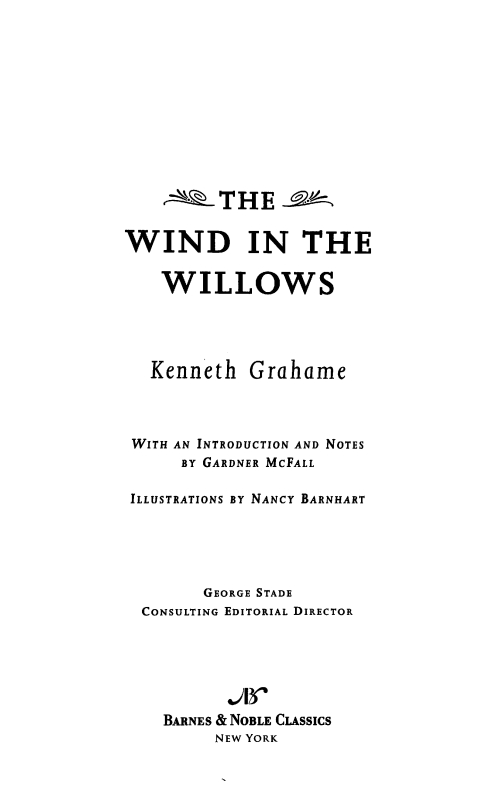
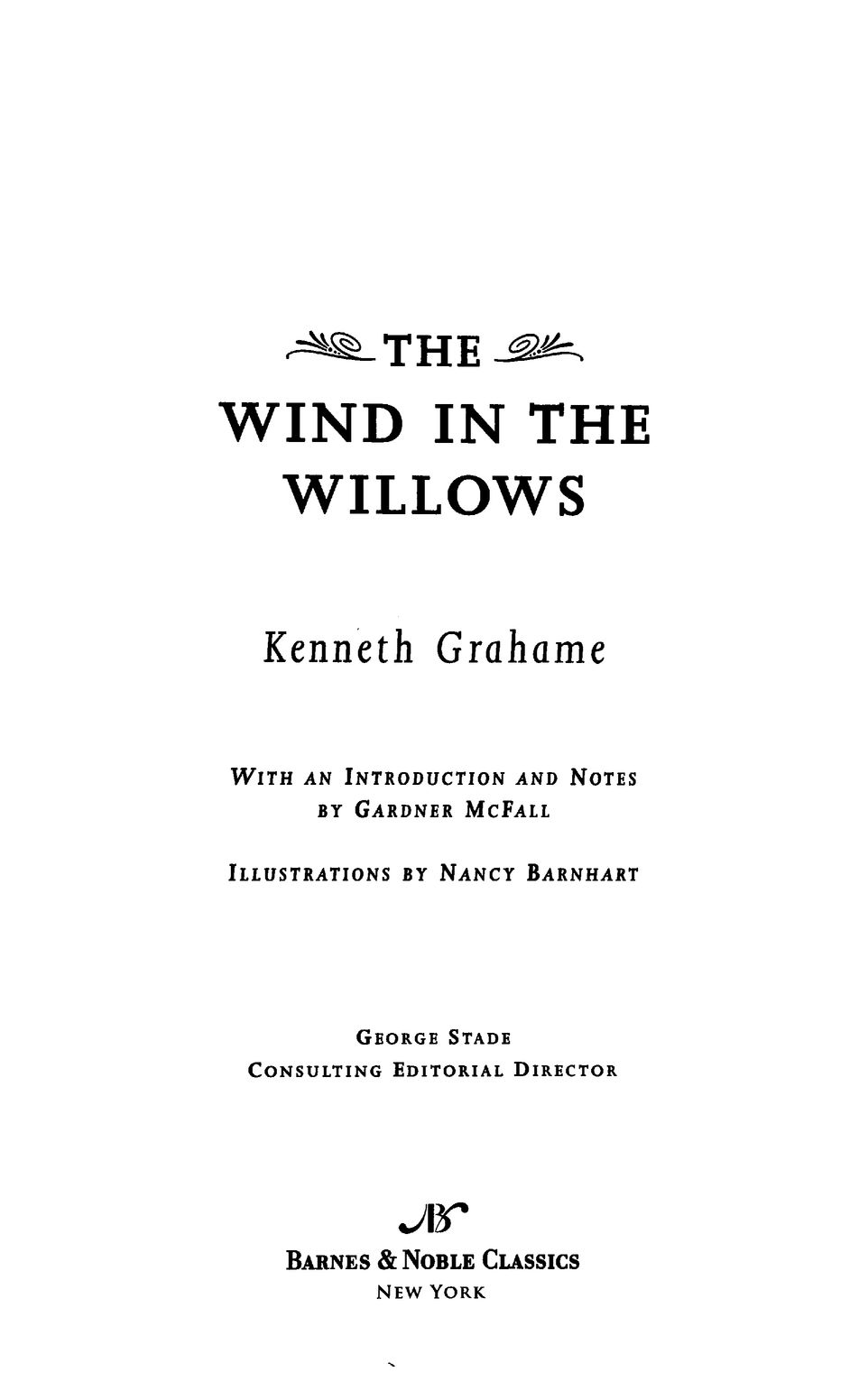
| 1859 | Kenneth Grahame is born on March 8 to Bessie Ingles Grahame and James Cunningham Grahame; the upper-middleclass family lives in Edinburgh, Scotland. Darwins The Origin of Species and Charles Dickenss A Tale of Two Cities are published. |
| 1860 | James moves his wife and three young children to Argyllshire, where he has taken the position of sheriff. The family first lives in the port town of Loch Fyne, then moves to another port town, Inveraray. |
| 1864 | Bessie contracts scarlet fever after giving birth to her fourth child; Kenneth also comes down with the illness. When Bessie dies, James sends the children to live with their wealthy maternal grandmother in England, at her home in Cookham Dene, along the Thames in Berkshire; later Kenneth will use the setting in The Wind and the Willows. |
| 1865 | Lewis Carrolls Alices Adventures in Wonderland is published. |
| 1866 | Financial concerns cause Kenneths grandmother to move to a smaller house in Cranbourne. The children live with James in Inveraray for a little less than a year, the last time they will live with their father. |
| 1868 | Kenneth and his brother William are sent to the private school St. Edwards, in Oxford, where Kenneth will spend the next seven years; he is an excellent student and gifted at sports. |
| 1871- | George Eliots Middlemarch is published. |
| 1872 | |
| 1876 | Although Grahame would prefer to go on to college at Oxford University, his family decides he should work for his uncle while trying to secure a position at the Bank of England in London. Grahame is not happy about the move but pursues his work with dedication. |
Font size:
Interval:
Bookmark:
Similar books «Wind in the Willows (Barnes & Noble Classics Series) »
Look at similar books to Wind in the Willows (Barnes & Noble Classics Series) . We have selected literature similar in name and meaning in the hope of providing readers with more options to find new, interesting, not yet read works.
Discussion, reviews of the book Wind in the Willows (Barnes & Noble Classics Series) and just readers' own opinions. Leave your comments, write what you think about the work, its meaning or the main characters. Specify what exactly you liked and what you didn't like, and why you think so.

